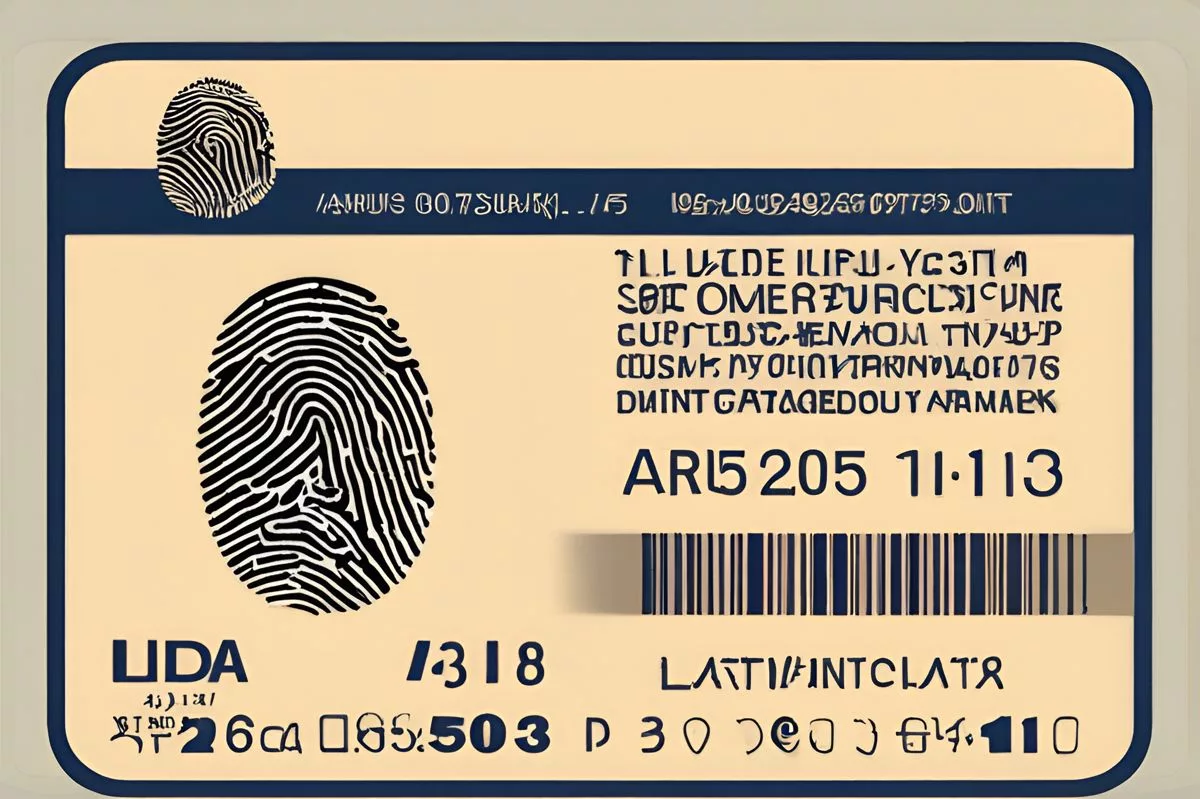South Africa’s banking sector is moving towards smart ID cards with fingerprint scans that link to biometric databases to streamline and digitize identity verification. The Department of Home Affairs encourages citizens to switch from green ID books, which will be phased out, to make verification more efficient, quick, and secure. This transition underscores South Africa’s commitment to leveraging technology for a more inclusive, equitable, and digitally-empowered future.
South Africa’s Banking Revolution: The Transition to Smart ID Cards
What is the transition from green ID books to smart ID cards in South Africa’s banking sector?
South Africa’s banking sector is shifting towards the more secure smart ID cards, relying on fingerprint scans that link to biometric databases. The DHA encourages citizens to switch from green ID books, which will be phased out to streamline and digitalize identity verification, making it more efficient, quick, and secure. This transition signifies a milestone in the nation’s journey towards a more inclusive, equitable, and digitally-empowered future.
As technological advancements continue to transform the globe, South Africa’s banking sector is no exception. A significant evolution is unfolding as top banks like Absa, Capitec, and FNB step up their scrutiny of damaged green ID books. This shift towards the more secure smart ID cards spotlights a major change in the process of identity verification and signifies an era of digital identification.
A Leap into Digital Identification
A critical aspect of this transformation is the growing reliance on fingerprint scans that link to the Department of Home Affairs’ (DHA) biometric database. This change significantly reduces the dependence on physical ID books, which need to adhere to stringent legibility requirements such as distinct customer information and an unblemished photograph. This innovative approach stretches the limits of conventional identification methods, preserving the credibility of the ID book while the country progressively embraces digitalization.
The DHA’s support for this shift is notable, with strong encouragement for citizens to switch from the green barcoded ID book to the groundbreaking smart ID card. Aaron Motsoaledi, the previous Minister of Home Affairs, expressed that the green ID books are soon to be phased out – a transition that is both imperative and vital for the nation’s advancement. His emphasis on the necessity of this shift underlines the urgent need to simplify the identity verification process.
The Transition: Urgency and Challenges
The current administration recognizes the urgency of this transition. Motsoaledi has affirmed the pressing need to revamp the country’s IT systems, often seen as a major cause of extensive queues. As part of this transformation, the green barcode ID will be progressively eliminated, aligning with the country’s broader objective to streamline and digitalize identity verification, thereby making it more efficient, quick, and secure.
However, it’s worth noting that the green ID book remains legally valid until an official announcement regarding its discontinuation is made. This emphasizes the meticulous and strategic approach the government is employing to ensure a seamless transition, taking into consideration potential disruptions and various stakeholders.
The journey towards smart ID cards is not without its obstacles. One significant barrier is the lack of a clear timeline for the phase-out of the old ID books, which adds uncertainty to the process. However, the innovative strides in technology across various sectors in South Africa provide a promising indication that this transition will likely occur sooner rather than later.
Embracing the Digital Future
As South Africa strides towards a digital future, the evolution of its identity verification process is an integral part of this journey. The shift from green barcoded ID books to smart ID cards represents more than simply a technological enhancement; it symbolizes the nation’s progress and resilience, demonstrating a major step towards a secure, efficient, and transparent future. This underscores South Africa’s commitment to leveraging technology to better the lives of its citizens.
The move from traditional to digital forms of identification exemplifies a broader trend in the digital era. Countries around the world are facing similar transitions, each presenting unique challenges and opportunities. South Africa’s journey offers invaluable insights into managing this change, harmonizing the need for security and efficiency with respect for past traditions.
With this shift, South Africa positions itself at the forefront of adopting technology to improve its identity verification procedures. This transition signifies a milestone in the nation’s journey, marking a future where every citizen’s identity is securely, efficiently, and accurately verified. This sets the stage for a more inclusive, equitable, and digitally-empowered future.
What is the significance of the transition to smart ID cards in South Africa’s banking sector?
The transition from traditional green ID books to smart ID cards in South Africa’s banking sector represents a significant evolution in the process of identity verification. The shift towards the more secure smart ID cards relies on fingerprint scans that link to biometric databases, reducing dependence on physical ID books and streamlining the verification process. This signifies South Africa’s commitment to leveraging technology for a more inclusive, equitable, and digitally-empowered future.
What is the role of fingerprint scans in the transition to smart ID cards?
Fingerprint scans play a crucial role in the transition to smart ID cards by linking to the Department of Home Affairs’ biometric database. This innovative approach reduces the dependence on physical ID books and streamlines the verification process while preserving the credibility of the ID book.
What is the Department of Home Affairs’ stance on the transition to smart ID cards?
The Department of Home Affairs strongly supports the transition to smart ID cards, encouraging citizens to switch from the green barcoded ID book to the groundbreaking smart ID card. The green ID books are soon to be phased out, which underscores the urgent need to simplify the identity verification process and streamline it digitally.
Is the green ID book still legally valid?
Yes, the green ID book remains legally valid until an official announcement regarding its discontinuation is made. This emphasizes the meticulous and strategic approach the government is employing to ensure a seamless transition, taking into consideration potential disruptions and various stakeholders.
What are the challenges of the transition to smart ID cards?
One significant challenge of the transition to smart ID cards in South Africa’s banking sector is the lack of a clear timeline for the phase-out of the old ID books. However, the innovative strides in technology across various sectors in South Africa provide a promising indication that this transition will likely occur sooner rather than later.
How does the transition to smart ID cards contribute to South Africa’s digital future?
The transition to smart ID cards is an integral part of South Africa’s digital future. It represents a major step towards a secure, efficient, and transparent future, demonstrating the country’s progress and resilience. With this shift, South Africa positions itself at the forefront of adopting technology to improve its identity verification procedures, setting the stage for a more inclusive, equitable, and digitally-empowered future.












